Cricket changed forever one fateful day at the Sydney Cricket Ground in late November. For those on the scene, the days, nights and weeks that followed remain harrowing. This is their story.
The day after next week’s first Test against India is complete, Australian cricket will pause to mark the 10-year anniversary of Phillip Hughes’ tragic death.
It has been a decade, but it feels like yesterday for the players, coaches, doctors and bystanders who endured the most traumatic experiences of their lives.
The grief has left a profound imprint on many, and below you will read their vivid and emotional recollections.
Hughes was universally loved and respected by all in Australian cricket and there is a unanimous belief he was destined to become a 100-Test legend of the game.
The 10-year anniversary coming up on November 27 is a time of mourning but also celebration of a special Australian who will never be forgotten.
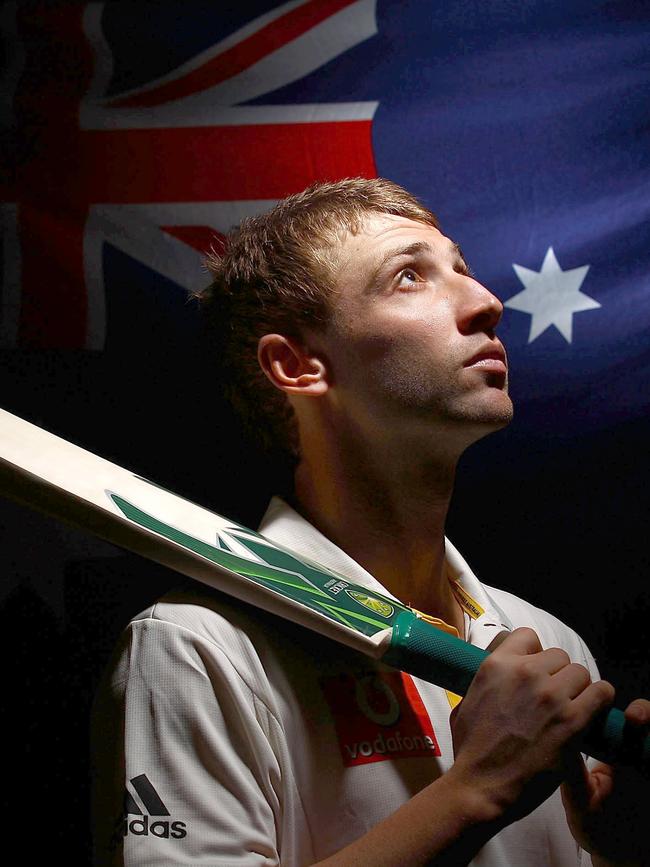
HUGHES FLYING TOWARDS A TEST RECALL
NSW and Australian star, Stephen O’Keefe: “Hughesy, he just didn’t look like getting out. Typical Phil. If he got a tough wicket he would find runs. But if he got a flat one and he got in, you’re like, ‘shit, we’re in for a long day.’ I bowled one over to him. I went for nine runs. He hit me for two boundaries so straight away he sorted me out.”
Former Australian Test captain, Michael Clarke: “I was doing a rehab session where the Swans train with Duncan Kerr (trainer). As I was walking back to my car that I parked at the SCG, I looked and saw the scoreboard and saw South Australia was batting and Hughesy was 25 not out or something. I rushed home to have a shower, get changed, and I was going to go back and watch him bat.”
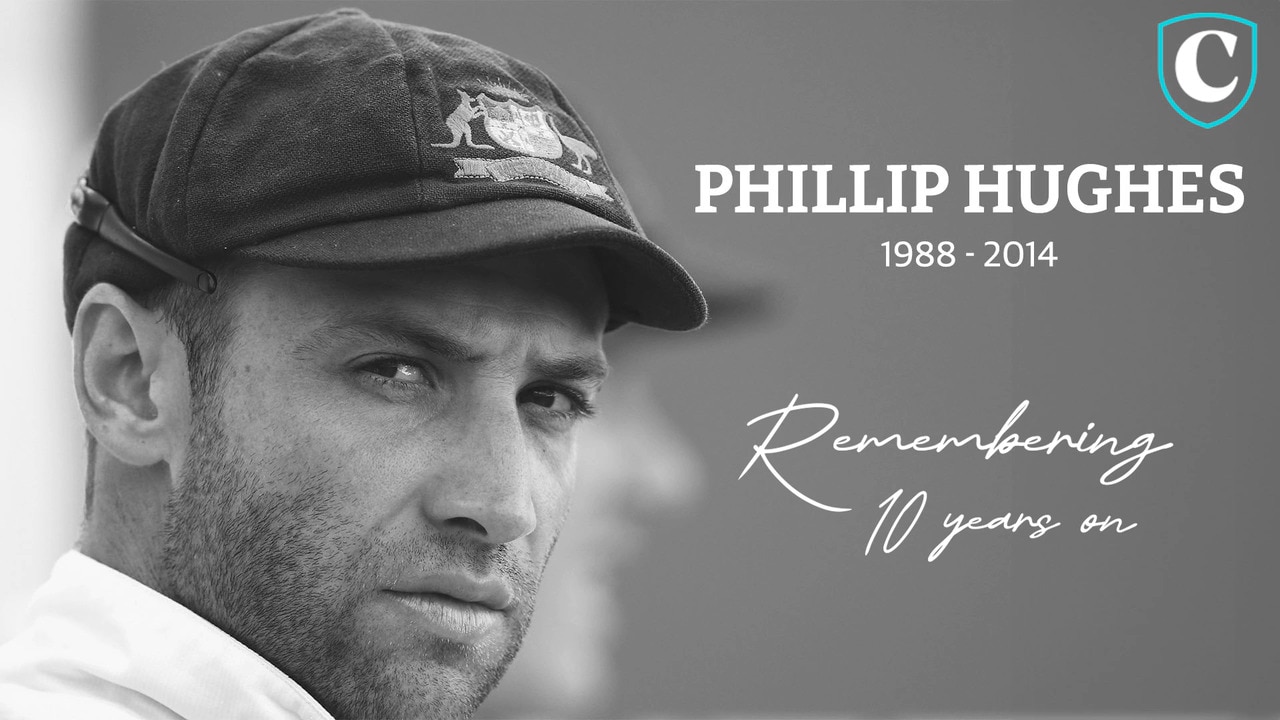
THE MOMENT THE GAME CHANGED FOREVER
WITH HUGHES PLOUGHING TO 63 NOT OUT AND FLYING TOWARDS A CENTURY THAT WOULD HAVE SECURED HIS RECALL TO THE TEST SIDE FOR THE SERIES OPENER AGAINST INDIA, HE WAS HIT, AND SUDDENLY THE GAME CHANGED FOREVER
NSW and Australian star, Shane Watson: “Well, I was fielding at first slip when Phil got hit. So I was one of the first ones to him after he collapsed. It was a very different experience to seeing people hit in the past. I knew something was very wrong and very bad, just with Phil’s reaction to the ball.”
O’Keefe: “I still remember it vividly. It takes a lot of time to decompress from all of that. I remember at the time it just being so shocking. I was at mid-off. He got hit and then he put his hands on his knees and you could tell something wasn’t right, but I didn’t think it was anything too untoward. It’s not like he got hit and went straight down. His hands went to his knees, and I just remember looking over to the dugout and just waving an arm, like, ‘I think someone should come out and have a look at him.’ And as I turned around I just got the last split second of him just going face first into the deck and that’s when real panic sort of set in.”
HOW THE PLAYERS REACTED TO THE MOST TRAUMATIC MOMENT OF THEIR LIVES
NSW and Australian star, David Warner: “Straight away my instinct was to run straight off the field. I just knew something wasn’t right. We did everything we could when we were out there. I ran to try and get some medical attention, to try and find a stretcher so we could get him off. The team doctor (John Orchard) ran out, the team physio ran out. From our point of view, it didn’t look great. From our perspective as players out there, it was a shock to the system. Most of the boys obviously hadn’t seen someone in distress like that before. It was confronting. It’s something I’ve never gotten out of my head. I get flashbacks. There’s coping mechanisms, but it’s just something that will happen forever. I don’t think it will ever go away.”
O’Keefe: “I just remember running over to him and the only thing I could think of was just get him into the recovery position, because you could see he was unconscious and he wasn’t breathing right. He’d have this really heavy breath, and then nothing. I had never seen anything quite like it and I didn’t know what was going on. We had him on his side and Orch the doc came out. I think Sabba (Sean Abbott) might have been holding his head. Nevi (Wicketkeeper, Peter Nevill) had his hand at his back and I remember it was Nevi who first noticed he just stopped breathing.
He said, ‘Orch, he’s just not breathing.’”
Clarke: “I went into the shower at home. When I came out of the shower I had five missed calls from Malcolm Conn (Cricket NSW and Cricket Australia media manager). So I rang him, and I said, ‘hey mate is everything alright?’ He said, ‘where are you?’ I said, ‘I’m about to get back in my car to come back to the ground and watch Hughesy.’ And he told me, ‘he’s been hit. There’s a helicopter about to land on the ground. Get here, now.’ Driving to the SCG (Clarke getting emotional as he talks), I feared the worst.”
Watson: “The one thing that probably stands out to me the most was how incredible John Orchard was. How unbelievably calm he was in this obviously chaotic situation of someone collapsing on the field.”
O’Keefe: “At this stage we were calling Triple 0. We called for the medicab to come out, but you were just in shock. We were lucky there was a guy at the ground in the stands who was a surgeon and he had come over the fence and helped out. It might have only been a few minutes for the ambulance to turn up but it seemed like it took forever. I remember some of the boys were out on Driver Avenue trying to hail in an ambulance. Davey Warner sat in the medicab with Phil and held his hand off the field. It was almost a bit surreal to see on a cricket field, because you couldn’t quite understand how that incident had stopped someone breathing. That just didn’t seem right. I remember just being really hysterical when I got off the field. I was just bawling my eyes out. I just couldn’t believe what I’d seen.”
News Corp photographer, Phil Hillyard: “I remember David Warner coming off the field on the medi-cab sitting next to Phillip, and Dave motioned to us photographers to put down our cameras and stop shooting. David that day, was extraordinary the way he leapt into action. There’s photos I took that day that I never supplied and some that I’ve never looked at again. As a photographer, there are no replays and you are trained to never miss a ball. But I actually wished I did miss this one and that I didn’t see it.”
NSW and Cricket Australia media manager, Malcolm Conn: “They had put a white sheet up on the boundary to protect Phil from the patrons in the Members’ Stand. I remember standing about 20 metres away and I heard John Orchard say, ‘I’ve got a pulse.’ I knew then, this wasn’t good.
Australian team doctor, Peter Brukner: “I was back in Melbourne and I remember coming out of a meeting and turning my phone on and there was a text message from one of my boys who was working in New York, saying, ‘What’s happened to Phil Hughes? Sounds bad.’ And that was the first I’d heard of it. I can’t remember what I jumped on to find out what was going on, but I confirmed it didn’t sound great so I thought, ‘oh shit, I’ve got to get up there and help out.’”
FROM THE SCG TO ST VINCENT’S
Clarke: “As I’m driving to the SCG, I’m halfway there, and Mal Conn calls and says, ‘they haven’t take the helicopter, they’ve taken the ambulance, he’s at St Vincent’s. So I changed direction and went to St Vincent’s. I pulled up in the ambulance only area, parked my car, left everything in there including the keys, I don’t know if my car was still running. I ran into the doors and that’s where a nurse has grabbed me to take me into another door where he was getting wheeled in for what must have been his first CT scan. And he looked normal.
He still had sweat on him. Zinc on him. Sunscreen. Sweating. All cricket clothes on. He was warm. He just looked so normal. So normal.
“My first thought; I was petrified. But then seeing him I think gave me a lot more confidence. Then it was about listening. Tell me what’s happened.”
Brukner: “Vertebral artery dissection is not something I’d ever known much about. I certainly know a bit more about it now. The doctors were measuring the pressures inside Phil’s brain. That was the key thing. To see whether they could keep that down or not. There was a little bit of optimism that evening that maybe the pressures are stabilising, he might be OK. By about, I think it was late morning, things took a turn for the worse. The specialist called the family in and basically said, ‘look, he’s not going to survive.’ So at this stage he was basically being kept alive on machines in intensive care and they said, ‘we’ll keep him alive as long as you want.’ So then the players started to arrive, and we had to tell them that things weren’t great.”
Watson: “(Long pause). Mmm, yeah. We all had hoped he would be OK. But then understanding the enormity of the situation of exactly what happened. Yeah, that was a really tragic time with his family there and just us as the cricket community and his mates there. You just wish you never had to go through it. You wished you still had your mate there on the journey on the way through. That was bloody tough.”
Warner: “I know all of us, we all were just thinking about the family. That was all that was important to us. Making sure everything was fine for them. The genuine care that was there at the hospital was unbelievable. It was teammate after teammate, all caring and being respectful of the family. When we got that opportunity to go and say goodbye – once they told us it wasn’t looking great, that’s when it really hit home to us. Cricket is a great game and we love the game, but it should never have taken a friend, a mate, a family member away from us.”
South Australia teammate and now Queensland coach, Johan Botha: “I flew back (to Sydney on the) Thursday morning at 5am. I just wanted to see him one more time.”
South Australian teammate, Tim Ludeman: “I remember fielding a call from Andrew McDonald (South Australian teammate and now Australian coach), who I was living with at the time, and he was sort of pretty upset and emotional, saying, ‘he’s gone.’ And I was sort of still, still believing that there was a chance.”
Australian coach, Darren Lehmann: “I had a little bit of an inkling it wasn’t going to be a great turnaround because of what happened to David Hookes. You always try and be positive but I was fearing the worst.”
Brukner: “Not all the players wanted to go up and visit him, they struggled with it all. Those who did go up, almost without exception, they were incredibly traumatised by it. Seeing Phil there. He didn’t look like Phil. It was really difficult for the players. Probably none of them had ever seen someone dying or dead or in that sort of situation, let alone one of their mates. It was really very difficult. A lot of my time was talking to players and staff and coaches. I remember in the evening we did a hook up with the South Australian team who had gone home. They asked me to give an update and I basically said, ‘it doesn’t look like he’s going to make it.’ There was just deathly silence. And I’m thinking, how traumatic that was for those young men to hear me say that.
I think everyone initially thought, this is a really bad injury. He might have some head injury. But it was really a shock to everyone that he was actually going to die.”
Conn: “Peter Brukner and John Orchard should have tied for the gold medal over those few days. What they did was unbelievable. Peter didn’t leave the hospital for a couple of days. Not to sleep, not to have a shower. He was magnificent. As was Michael Clarke.”
Brukner: “The next morning the family had decided that at some stage that day they would give agreement to switch off the life support. Throughout all this, I have to say Michael Clarke was amazing. He was just a rock of Gibraltar for that family. He spent all his time with them, talking to them. I was really impressed by what he did over that period of time.”
Clarke: “It was a blur. All of it was a blur. I’ve never listened to Phillip’s eulogy. I’ve never seen it. I think when a family member dies, you go into help, support. My father instilled in me when I was growing up that part of your responsibility is to make sure your mum is OK and your sister is OK. My brain just went to that.”
Brukner: “After the press conference we were walking out and Michael Clarke says to me, ‘come on, Doc.’ I said, ‘what do you mean?’ He said, ‘come on, we’re going to see Hughesy’s mum.’ So he and I went and spent some time with Phil’s mum. That was a really tough hour or so. She was just so distraught. We are parents. We think we understand. But until you go through something like that … that was really difficult.”
THE FUNERAL
Watson: “Honestly, quite a bit of that day is a blur. But seeing how much he was adored within his own town and also within cricket with the Indian players coming up for the funeral as well, stood out to me the most. The toughest part for the cricketers was knowing that it absolutely could have been any one of us. For me personally, my son was just on two, so just knowing how different life would have been for my family if it was me.”

GETTING READY FOR ADELAIDE TEST
Lehmann: “I never had closed sessions once when I was coach, I don’t believe in them. But on this particular occasion when we were out at Park 25 it was a closed session. A couple of guys hit a few balls and just started crying and went back to the hotel. Cars would pick them up and get them out of the public sight. Some just went for long walks and disappeared for a few hours. It was just trying to get them to walk again, one step in front of the other.”
Warner: “To be fair, I don’t know (how I got back on the field for that Test). I was in no way shape or form in the mindset. When I walked back in the nets, I just didn’t feel like I wanted to play the game. The thoughts that go through your head was like, ‘why am I playing this game?’ I had to build up the courage. It was bloody hard. Bloody hard. I had conversations with our psychologist at the time, just trying to work out mechanisms to try and get through it. Trying to find a way. If I’m out there and something all of a sudden comes into my mind, how do I deal with that? What kept on being reiterated (by the coaches) was if you’re not feeling good about it, then just come off. I managed to find the strength but I think the strength came within every player. In the back of my mind I was always thinking, ‘he would just want us to go out there and play.’ I had a good 24-48 hours of thinking, ‘what would Phil be saying? What would he be thinking right now?’ For me it was about him saying, ‘bruz, let’s get out there.’”
Watson: “I know that first net session getting back into it, it was the most challenging net session I’ve ever had. My whole experience of batting changed. My whole thought process. It was a lot of different things that were going through my mind. The flashes would keep going through my mind after every ball facing the bowlers again. There was a number of players, and I can talk about it from my perspective because I was one of them, that it didn’t matter whether we played immediately straight after it, or we played in a month’s time, it was still going to be (as hard). The fear of what was going to be coming down at me – I didn’t have the coping mechanisms to be able to shut it out. Knowing that something like that could happen if I got it wrong, if I got into the wrong position and I got hit, it was just a very weird time in our careers.”
Clarke: “I’ll never forget that first net session. It was at Park 25 in Adelaide against two or three net bowlers. And I said to the net bowlers, ‘mate, you’ve got to let me have it. You’ve got to give it to me.’ And the very first ball was a bouncer and I don’t know how it missed me. I moved so slow and it sort of just skimmed past me. I imagine the feeling would have been mutual to everyone. It didn’t feel real. Surely this must be a bad dream?”
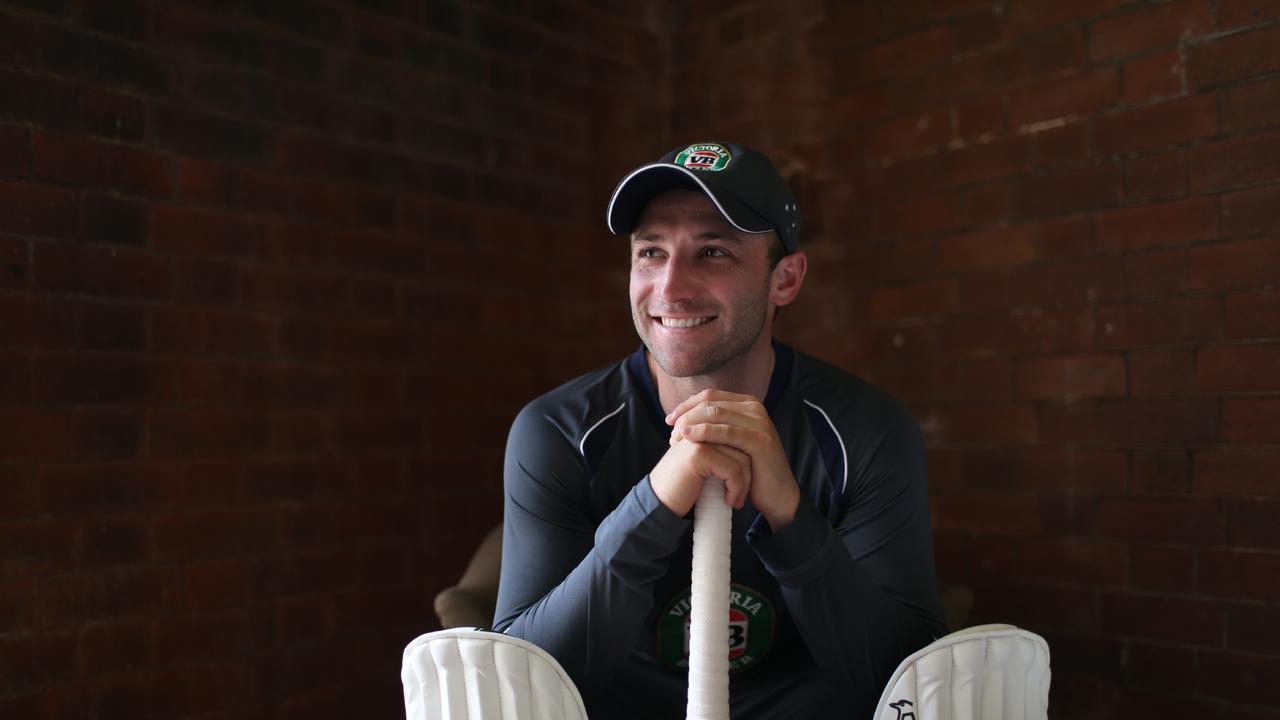
NSW TRAINING
O’Keefe: “There were net sessions I remember where guys got hit in the helmet and then would just walk out of the nets in tears because it was so traumatic what had happened. I remember Moises (Henriques) got hit not long after. He got lidded and walked out and was really upset by it. It changed the way we viewed it. I happily admit at the back end of my years, I got scared of facing fast bowling. I didn’t even go in the nets the last three or four years of my career. You think, ‘God, this is actually terrifying,’ and I know blokes were feeling that.”
MITCHELL JOHNSON HITS VIRAT KOHLI
Watson: “Virat was public enemy No. 1 to us. He was obviously the best batter in their team. We needed to get on top of him. Normally, if someone like Virat was hit and hit hard, someone would go up and say, ‘are you OK?’ but that was part of the fear factor that we wanted to try and instil to try and get him off his game in some way shape or form. For Mitch Johnson, that was his super power. We saw in full force the Ashes series the summer before. That (aggression) was Mitch’s super power. But as soon as Virat was hit hard like he was this time in Adelaide, it was a very different experience. Mitch Johnson went up to him straight away. All the other guys ran in to make sure he was OK. And I think from that moment, that super power for Mitch really started to dwindle away. Because he realised that he could be involved in something (tragic). We were all jumping at shadows because of the tragedy we had experienced a week or so before.”
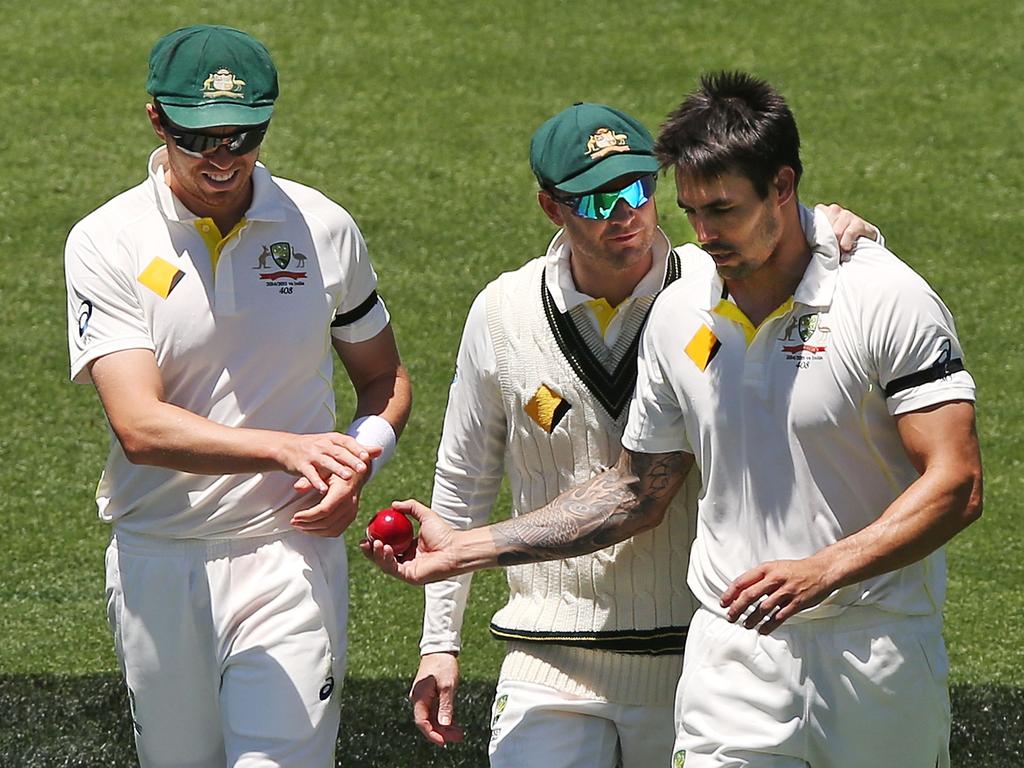
DAVID WARNER HUNDRED IN BOTH INNINGS
Warner: “My mind was just not on cricket. I’ve often said that your best days are usually when you feel sick or something is wrong. No one was there. It was just me, the pitch and the person delivering the ball. That’s all I saw. It’s probably one innings where I’ve come off the field and gone, ‘what happened out there?’ The hundred felt big – and it was big to me. But I walked off the field and in the sense of it being a personal achievement, I just didn’t care. I went out there and I did what I had to do, and that was doing it for him. That was all I cared about was doing it for him.”
MICHAEL CLARKE HUNDRED ON ONE LEG
Clarke: “To be honest, I wasn’t fit to play that Test match. I wasn’t fit to play when it was meant to start on time on December 4 before Phillip passed. I did no training for those extra 10 days (from when Phillip was hit) until the revised date of December 9, so I’ve done less hamstring strength, less back strength. I did my back when I was on about 30 so I couldn’t move. I don’t know (what to say about the innings).
You were batting for someone else. I wasn’t batting for me. The whole game was for somebody else.
It shouldn’t go down as a game for me for Australia, it should go down as a game for him. That’s honestly what it felt like. I think my brain was numb. I couldn’t hear anything. I was playing the game based on muscle memory and to do the right thing for him.”
Lehmann: “The emotion. Blokes going off at lunch time crying. At the end of the day, really quiet change rooms just thinking about it. India were great, and the match referee was great because there were some blokes who went off the field at different times, who just needed a break. We had a little shrine in the corner for him. And all those little moments throughout the game where blokes made hundreds or stood on the 408 sign or David Warner kissing the pitch on 63. Things like that resonated emotionally with everyone. It was a very sombre time. You can only imagine what we were going through, but times that by 100 or 1000 for the family. Somehow we got a result and relief at the end of the Test match. We got through it, somehow.”
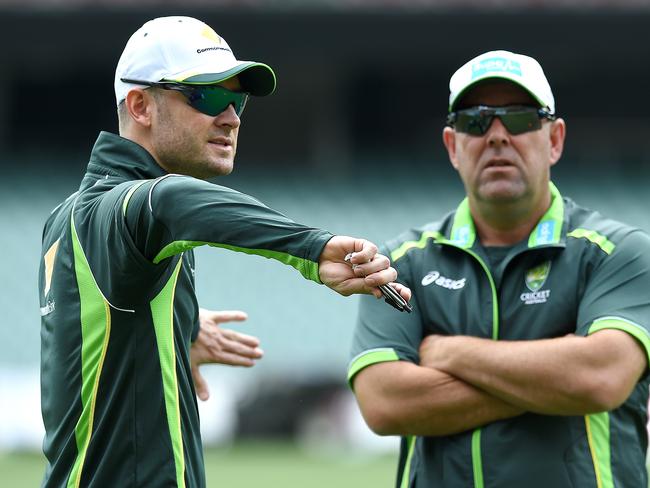
HOW DID PHIL’S PASSING IMPACT YOUR CAREER
Warner: “The most difficult thing for me was not being able to take the field with a mate. To no longer be able to go out there with him. The game has taken someone away from us that we love. Why did it happen? That’s the question I’ve just never been able to answer.”
Clarke: “It changed everything for me. To see someone else, let alone your little brother, pass away doing what you’ve done your whole life. I was always the shortest kid at school and in every cricket team I played in, so I could never afford to fear anything. That was my strength. It was like, the faster you bowled, the more I loved it. But once you fear anything at all, wow, that game is a scary place to be. I probably should have walked away after the World Cup final (in early 2015). I should have stopped there. But I didn’t know because it hadn’t (Phillip’s death) hit me yet. Trying to get myself fit for the World Cup, my brain had stuff to focus on. When we went to the West Indies in 2015, that’s when it hit me. I felt like I needed to spend time on my own to deal with what I was dealing with. I couldn’t shake it. I was floored. I was in tears every night. I thought, ‘OK, now it’s hitting you. You probably need to go through this.’ Then I went to England for the Ashes and I thought I’d come good for England being a big series. But I just felt like I was off the ball. I got found out.”
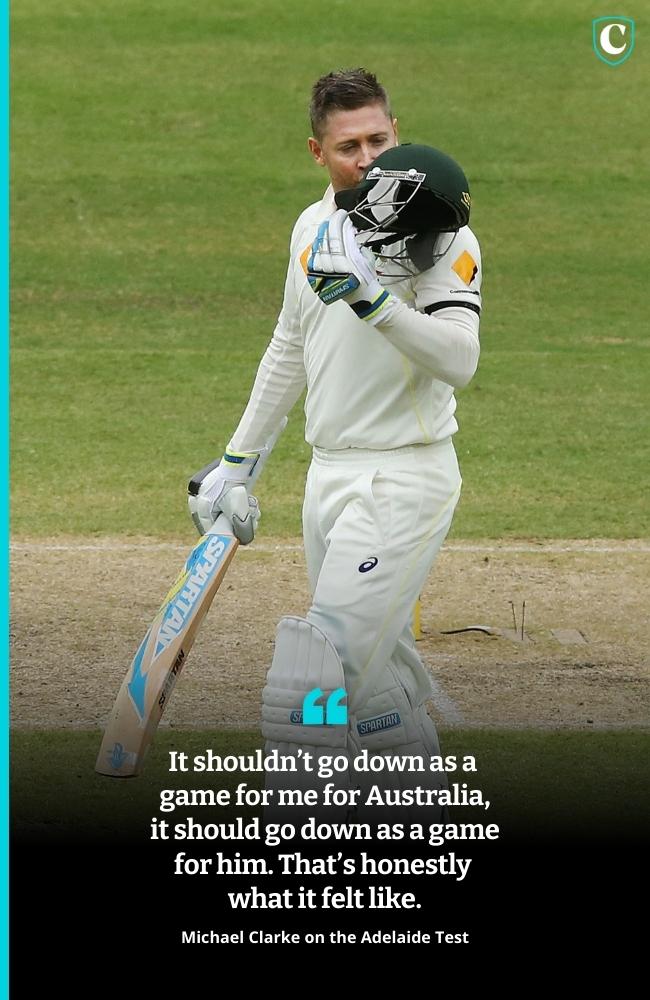
Watson: “It had a huge impact on my life. The tragic thing about the whole accident for me was the innocence of the game of cricket just immediately vanished in that tragic moment when Phil got hit. Never, ever did I think you could get killed from the ball coming at you. That for me just had such a huge, profound impact on my cricket career and my ability to be able to remove that fear that was front and centre in my game from then on.”
O’Keefe: “I know a lot of guys had a softer approach to the game afterwards, and this probably sounds a bit odd to say, but I probably played with a lot of bitterness. Rather than counting my lucky stars, I probably went the other way and looked at the game through a different lens. I played like a frustrated cricketer. I was probably a little bit more lippy and a bit more out there and outspoken when I was coming up against teams. I was probably naturally always that way inclined, but I leant into it even more. Looking back on it, I think the unjustness about what happened to Phil, I got frustrated by it and it spilt into different areas. Probably because I didn’t go into the trauma of what happened to quite understand it. I played with a chip on my shoulder and that was for many reasons, but I think that was part of it. And I used it as an excuse. It’s not something I’m super proud of. If I had my time again I would look at it differently. Even now after playing cricket, I still chat to a psychologist regularly about all sorts of things including that (Phil’s death), trying to understand it all.”
Ludeman: “I finished up in the Big Bash (in 2018) and still probably hated the game. I didn’t want to end on that note. It wasn’t until a couple of years ago when I moved back to Warrnambool, I played for my junior club and I just wanted to try and recreate what it was like when I was kid. To just play for the love of it, no money involved. Just have fun with the boys. (Because of Phil) I sort of wanted to finish on that note. We ended up winning the flag as well. I actually loved the game again.”
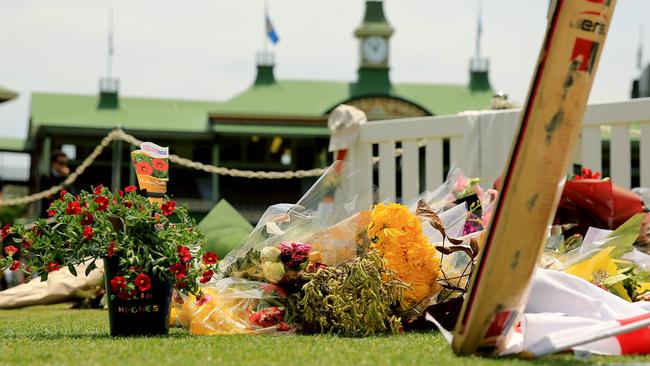
HOW YOU REMEMBER PHIL AND HIS ANNIVERSARY
Clarke: “For me every year I’ve tried to pay my respects and celebrate the day he passed, the 27th, and his birthday which was the 30th. Someone sent me two candles after Phillip passed, they’ve got a picture of Hughesy and his cattle and so every year together with my daughter, we’ll light those candles and blow them out and I’ll have Hughesy’s favourite drink, a vodka red bull. I still have his number in my phone. You sort of just expect that a message will pop up every now and then. I don’t think that feeling has left me yet and hopefully it never does.”
Warner: “The guys who knew Hughesy, we all just have a vodka red bull to cheers him, that was his choice of drink. I’ve always said from day one, you always feel that he’s around. His presence. You always feel his presence around. I remember Hughesy as he was: as a mate.”
Smith: “I think about him a lot. This might sound strange, but I look down at my phone so much and the time is 4:08 (Hughes’ Test cap No. was 408) and I just happen to be looking at my phone, and I’m like, not again, like, this is happening way too much. Like, I don’t notice it any other time when I look at my phone, I just see the time, whatever, but I see 4:08 and I’m like, ‘geez, wow, that’s strange.’ But no, look, can’t believe it’s 10 years. It seems like it was yesterday. You know, he was a good friend. And, you know, I think, from a cricketing aspect, you know he was very good, but people didn’t see him playing at his best in terms of, I think his best was still to come, like he’d just figured out how to play even better on the leg side. You know, it was always real renowned for his cover drive and his cut shot, but he was playing pull shots, hook shots, and working off his pads particularly well as well. So he was now just scoring all around the ground. And I reckon he only developed a lot of that not too long before he passed. That was one of the sadder points for me. I would have loved to have seen him play with his full package. Ten years, I miss him. I think about him a lot, and yeah, I miss him.”
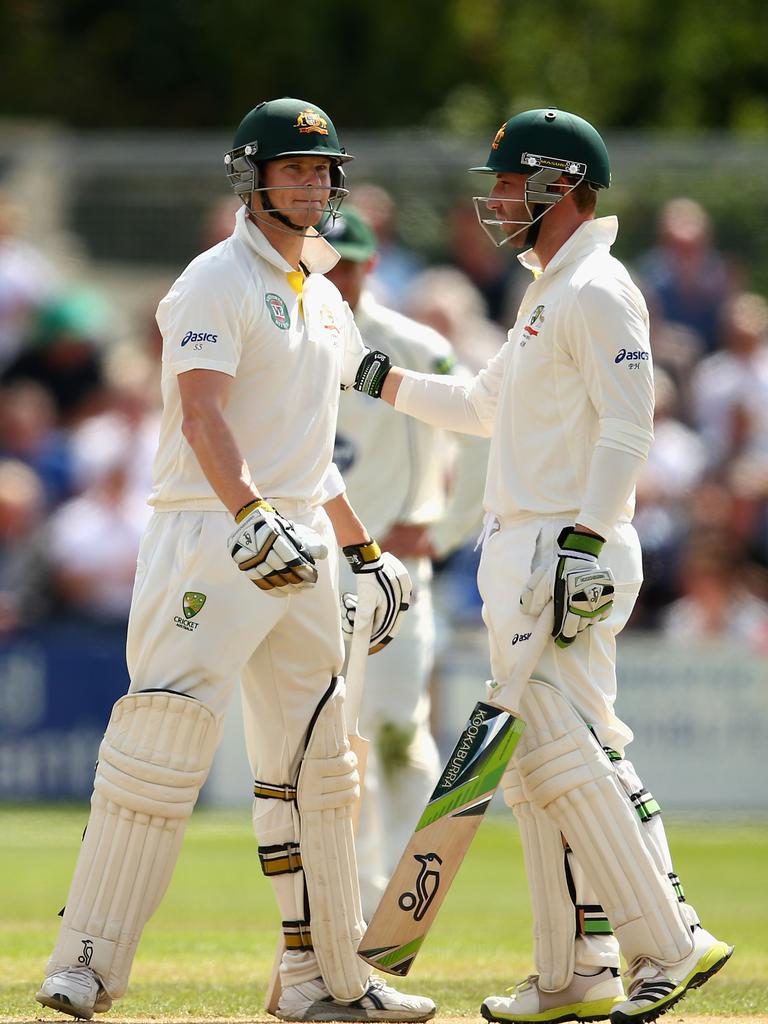
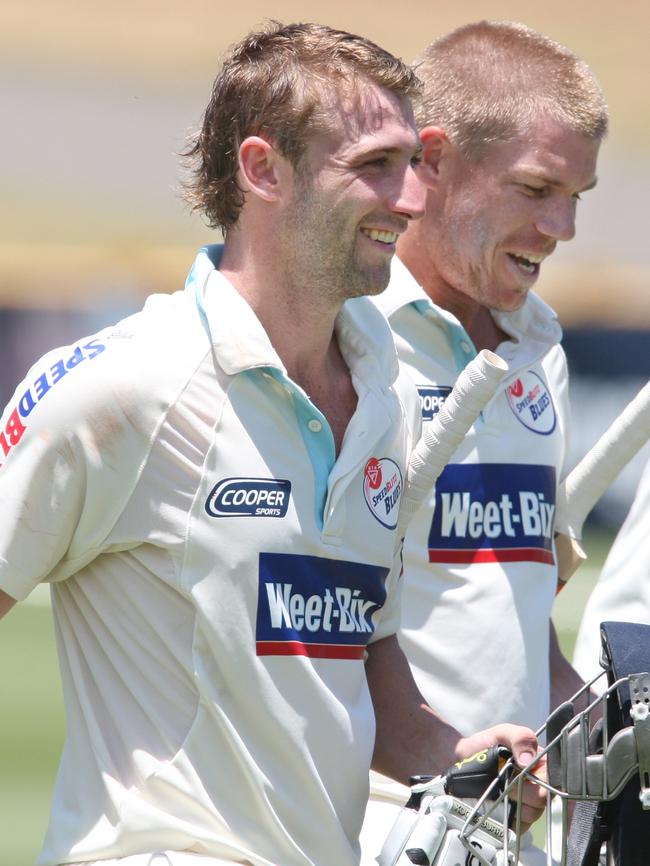
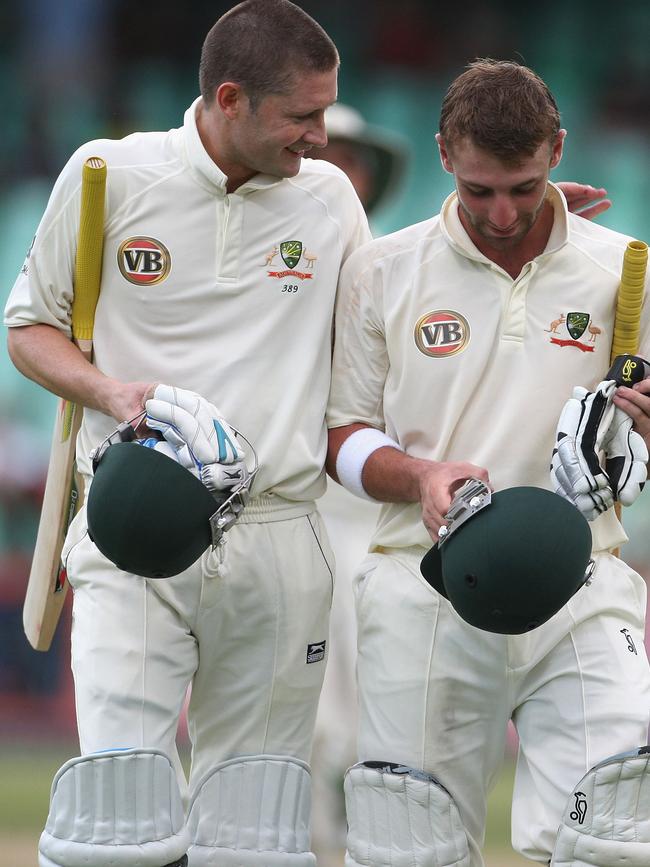
Lehmann: “I have a quiet beer and reflect. I remember all the (people putting) bats out. New Zealand playing a Test match not appealing. I remember us playing a game of cricket again without all the fire and brimstone. And it was just really lovely to watch to be perfectly honest. The game of cricket in its purest form.”
O’Keefe: “When he was playing, Phil gave us a stubby holder with his 408 Angus on it. I’m sitting with it in my hand right now. Each year when the anniversary rolls around, I have a beer on that day in the stubby holder, just to have a toast and remember him by it. As you get a bit older it gets a little bit more sentimental rather than less.”
Watson: “It’s not just on the anniversary day, it’s any moment where something comes up that makes you think about Phil. Always the thing that comes into my mind is just how sad it is that his life was cut so short. With so many incredible things that were in front of him. The joy of being around him. He was a pleasure to be around.”
Botha: “Zamps’ (Adam Zampa) wife made a drawing (of Hughes). She made two copies, one for Adam and one for myself. And you know, I’ve still got that at home … then I got a tattoo on the inside of my right arm which is sort of that photo where the bat is leaning against his stumps, yeah, with a red cap on it.”
Ludeman. “I have a photo on the wall of Phil. So I walk past him every day. I think about him most days, probably without consciously going too deep into it.”
Brukner: “Every anniversary I exchange texts with Michael Clarke. I give a lecture every year to the law faculty at Melbourne University about sports medicine law and I present the Phil Hughes case as an example. I must admit, I always get quite emotional when I talk through the story. I suspect a lot of the guys feel the same. It’s hard to put into words.
“It’s just a horrible experience. You’re not supposed to die playing cricket and you’re not supposed to watch your mate, go and see him in ICU and know you’ll never see him again. You just don’t know how it affects these young guys in the long run. I know everyone speaks well of the dead and so on but Phil was everyone’s favourite player.
“In Phil’s case it was actually true. I think if you’d taken a vote among the first class cricketers in Australia about who was their most loved player, it would have been Phil Hughes.”

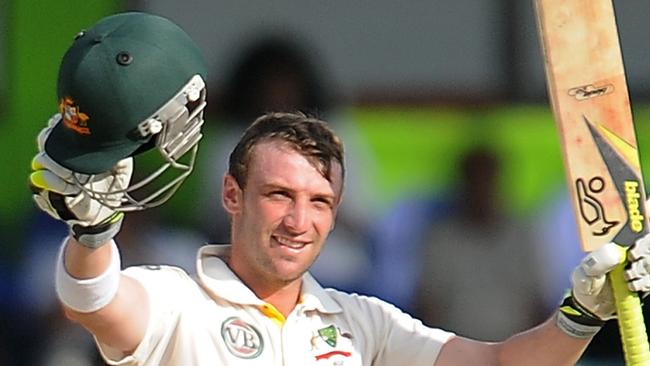
Add your comment to this story
To join the conversation, please log in. Don't have an account? Register
Join the conversation, you are commenting as Logout
How the Gilchrist family supported WNCL star through family tragedy
Ahead of the WNCL final, Lismore native and NSW star Sammy-Jo Johnson has opened up about the support she has received from Adam Gilchrist’s family after her father’s suicide in 2012.
England captain quits, Poms in shambles
England’s ODI captain has fallen on his sword and quit after the Poms missed the knockout stages in a dire Champions Trophy campaign.